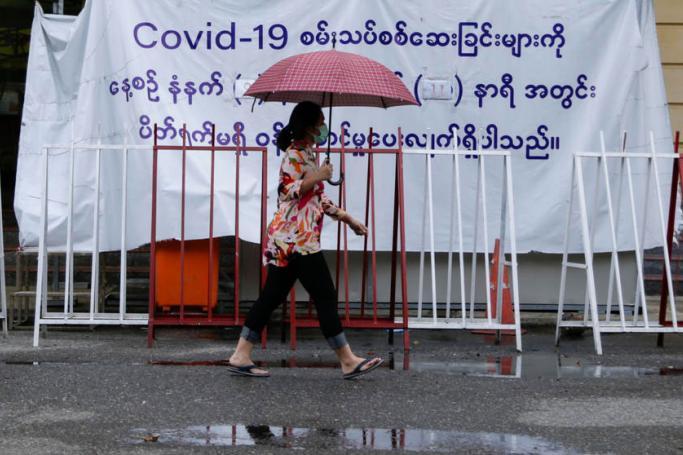Shwe Yee’s story is typical for young city women seeking work in the wake of the Myanmar military coup.
Shwe Yee (an alias) is a fair-skinned woman in her twenties, from what could be termed a typical family, who is constantly pouring through job advertisements in search of work. She’s been hit by two major challenges, forcing her to stay at home for two years, with only brief employment opportunities.
First, it was the COVID-19 pandemic restrictions that hammered businesses and employment options.
Second, it was the February 2021 military coup that further damaged the Myanmar economy and appeared to make it that bit harder for women like her to get a job.
Hopelessness sums up the feelings of many like Shwe Yee who are stuck at home with their family, desperate for work, and embarrassed they have to rely on their family to support them.
But as family pressure builds, Shwe Yee can no longer remain idle. Instead, she has toprepare a Curriculum Vitae (CV) and cover letter as she goes in search of a job.
Her biggest hurdle? Her sex. Shwe Yee says you are unlikely to be hired if your gender is female, even if you can do the job. For working-class families, gender-based discrimination is a serious problem.
She says she has a vivid dream of getting a well-paid job, even though she has not had the chance to graduate from university. Such a job, she muses, would give her a passport to afford enough food to eat.
But her lack of higher education qualifications means its limits the scope of jobs she can apply for. Therefore, she says, she has been looking for a job that doesn’t require a higher education level and skills.
In Myanmar, there are a number of job opportunities for men and they can easily work anywhere as an assistant at any workplace or as a carpenter on construction sites. But there is less chance for women to be hired and they undergo vigorous interviews, and their chance of being taken on is low.
“I have some experience of working in 24-hour convenience stores, which mostly employ young people. Due to the socio-political situation, women are not allowed to work there on the night shift which lowers our earnings compared to men,” Shwe Yee says.
As she notes, there is potential danger in such a position at night if you do not have a co-worker, as is the case in a number of stores.
“Some customers want to sexually exploit the girls who are working alone in the store. So, I had to leave that job because of the insecurity. The way they look at women is disgusting,” Shwe Yee says.
Shwe Yee is not alone. There are lots of women in her boat, and a fair bit of tongue-in-cheek humour on Facebook about the difficulties of getting work in modern-day Myanmar, especially for young women.
It’s a crisis for Myanmar’s youth – a lack of opportunity compared to other nations, particularly compared with the developed world.
And it is particularly bad for women under the junta oppression.
“At the moment most women are suffering and losing equal opportunities. In my point of view, women are being deprived of women's rights more during the period when basichuman rights are being violated. For example, women are being tortured in the interrogation centres,” she said.
Women are particularly vulnerable. A recent UN survey found that over 50 per cent of women in modern-day Myanmar are afraid to go out even during the day. Due to the economic recession, some companies and industries laid off their employees, and to be able to support themselves and their families, some young women must go out and work as sex workers. Young women in the ethnic minority regions are being abused sexually and raped.
Shwe Yee says she is very concerned about the discrimination against women and because of the dysfunction of the system of the country, women's rights have been lost. In addition, the right to access education has been taken away as well.
Even though the authorities talk about equal rights and opportunities for men and women, there is still discrimination against women.
“In society, it is assumed that women are supposed to do housework, and they are not given any liberty to make their own choices. Instead, they are being oppressed. If a woman can work like a man, she is criticized more,” Shwe Yee adds.
Myanmar has been plunged into the Dark Ages due to the coup and it is uncertain how long the military dictatorship will last. Given these circumstances, it is hard for young people like Shwe Yee to get on with their lives.












